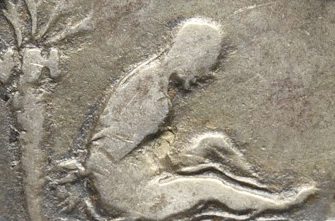
Jews, Enslavement, and Rape: Social Realities and Literary Representations in the Early Modern Era
Tamar Herzig, Tel Aviv University
Wed, 4/2 · 4:30 pm—6:00 pm · 010 East Pyne
Program in Judaic Studies; Center for Collaborative History

Join the Program in Judaic Studies and the Center for Collaborative History for this talk by Tamar Herzig on Wednesday, April 2. This event is part of Judaic Studies’ ongoing Lecture Series on Antisemitism.
Abstract
This lecture will compare the ways in which interreligious sexual violence against Jews is depicted in literary sources with the social realities documented in rabbinic responsa and supplications from the sixteenth and seventeenth centuries. All extant accounts dealing with the rape of Jewish women and girls were written by men; rabbis, chroniclers, learned authors, and community leaders. Nonetheless, I propose that literary depictions written or published in early modern Italy used the representations of interreligious rapes to reinforce a patriarchal image of Jewish society, by upholding an ideal of maidens and married women who preferred killing themselves, to safeguard the presumed honor of their family and community, when facing non-Jewish assailants. In surviving responsa and supplications from this period, on the other hand, rabbis and community leaders reveal the more common scenario of female rape survivors, whose continued existence, as well as the subsequent birth of children as a result of their rapes, created a range of problems for their families that could not be ignored.
Open to the public. Refreshments will be available.
More about Tamar Herzig
Tamar Herzig is Professor of History at Tel Aviv University, where she holds the Konrad Adenauer Chair in Comparative European History and serves as Director of the Lessing Institute for European History and Civilization. She currently leads the project “Female Slavery in Mediterranean Catholic Europe, 1500-1800 (FemSMed),” which is funded by the European Research Council’s Advanced Grant. Her research interests lie at the intersection of social, religious, and gender history, with a particular emphasis on the persecution of marginalized groups in Mediterranean Europe. Her books include Savonarola’s Women: Visions and Reform in Renaissance Italy (Chicago, 2008); ‘Christ Transformed into a Virgin Woman’: Lucia Brocadelli, Heinrich Institoris, and the Defense of the Faith (Storia e Letteratura, 2013), and A Convert’s Tale: Art, Crime, and Jewish Apostasy in Renaissance Italy (Harvard, 2019), which was awarded honorable mention for the Renaissance Society of America’s Gordan Book Prize and won the American Historical Association’s Dorothy Rosenberg Prize for the Best Book on the History of the Jewish Diaspora. The Italian translation of A Convert’s Tale, won the FiuggiStoria Prize for a best book in European History in 2023 and the Cherasco Prize in History in 2024. For her work on religious conversion, Herzig won the Kadar Family Award for Outstanding Research (2019). For her contribution to Renaissance history, she was awarded the Michael Bruno Memorial Award for the most promising Israeli researchers under 50 (2021). Her article, “Slavery and Interethnic Sexual Violence: A Multiple Perpetrator Rape in Seventeenth-Century Livorno,” American Historical Review 127:1 (2022), pp. 94-122, was awarded Article of the Month by the Mediterranean Seminar and won the Society for the Study of Early Modern Women and Gender Best Article Award for 2022. Her work has appeared in Hebrew, English, Italian, Spanish, Portuguese, French, and German.















